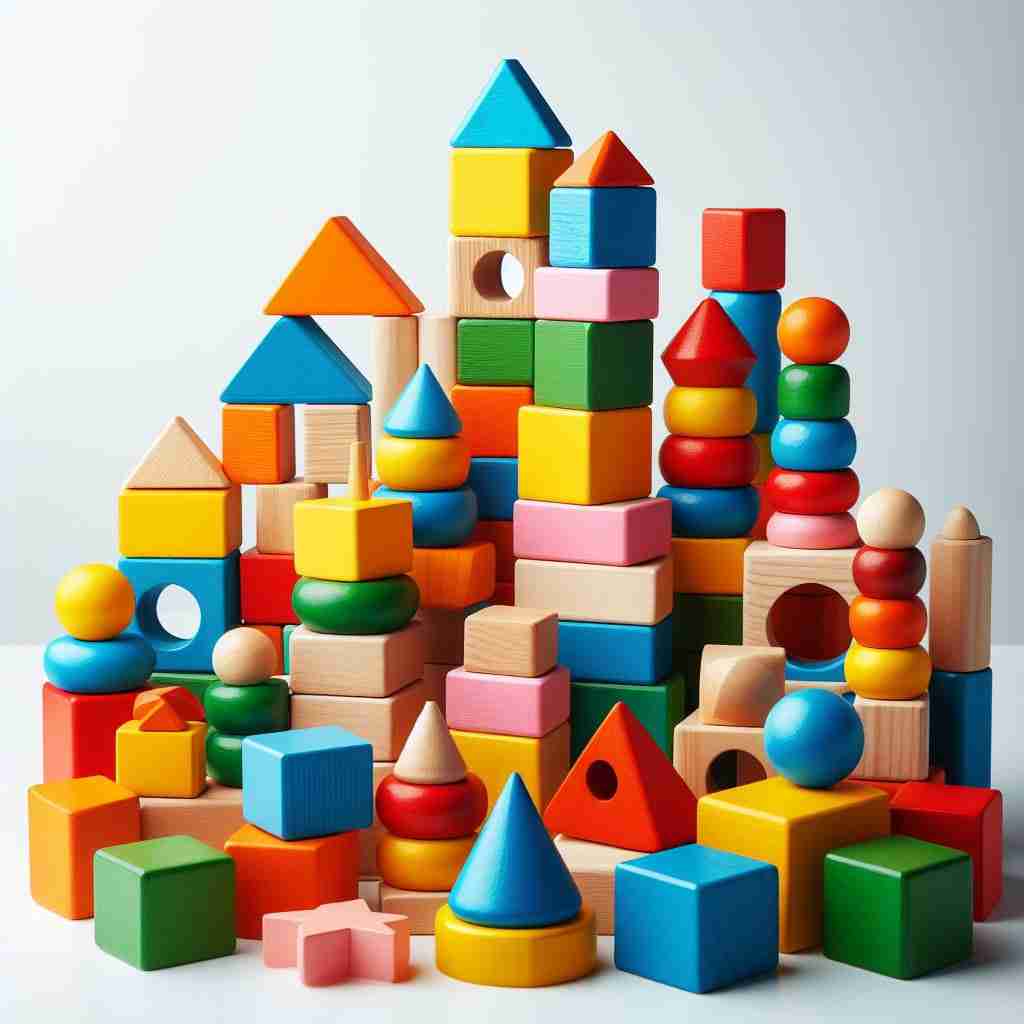
building blocks toysAs technology changes faster than ever, kids are spending more time with digital screens and virtual worlds. But nothing can replace the fun and learning that comes from playing with real, physical things. That’s why building blocks toys are so amazing for kids. They help them grow their brains, their social skills, and their bodies. In this blog, we will explore how building blocks can make a big difference for kids and reveal the many benefits they bring, helping kids become well-rounded and happy.
Importance of Building Blocks
- Foundational Learning Skills:
At the heart of a child’s early education lies the fundamental importance of building blocks. These toys serve as the bedrock for a myriad of essential learning skills. From understanding shapes and colours to grasping basic mathematical concepts, building blocks lay the foundation for more complex cognitive processes that children will encounter later in their academic journey.
- Spatial Awareness and Coordination:
The manipulation of building blocks demands precision, fostering the development of a child’s spatial awareness and hand-eye coordination. As young builders experiment with different arrangements and stacking techniques, they not only gain a deeper understanding of spatial relationships but also refine their fine motor skills, preparing them for more intricate tasks in the future.
- Problem-Solving Abilities:
Building blocks inherently present children with open-ended challenges. The act of constructing structures requires critical thinking and problem-solving skills. As children encounter difficulties in creating stable towers or intricate designs, they learn the art of persistence, adaptability, and creative problem-solving – skills that will undoubtedly serve them well throughout their lives.
- Creativity and Imagination:
Building blocks act as versatile catalysts for imaginative play. Far beyond mere construction, children can transform simple blocks into elaborate structures, vehicles, or even entire fantastical worlds. This imaginative play not only nurtures creativity but also allows children to express themselves through storytelling and role-playing, fostering a sense of individuality and confidence.
- Social Interaction:
The joy of building with blocks often extends beyond solitary play. Whether constructing a towering masterpiece with friends or sharing blocks with siblings, these activities promote social interaction and communication skills. In the collaborative effort of building together, children learn valuable lessons in negotiation, sharing, and working towards a common goal.
Benefits of Building Blocks for Kids’ Learning and Development
- Enhanced Cognitive Skills:
The process of building with blocks engages a multitude of cognitive functions, contributing to the overall enhancement of a child’s cognitive skills. From spatial reasoning to memory retention and attention to detail, the manipulation of blocks requires a level of mental engagement that transcends mere play, paving the way for advanced cognitive development in children.
- Fine Motor Development:
The manipulation of small building blocks is a tactile exercise that significantly contributes to the refinement of fine motor skills. The intricate actions of grasping, stacking, and connecting blocks demand precision and control, playing a crucial role in the development of muscles in the hands and fingers. This fine motor development is foundational for activities such as writing and other intricate tasks.
- Mathematical and Scientific Understanding:
Building blocks serve as tangible tools for introducing foundational mathematical concepts. Through hands-on experiences with blocks, children naturally engage with counting, sorting, and patterning, laying the groundwork for mathematical proficiency. As they experiment with different block arrangements, they gain an intuitive understanding of geometry and physics, making abstract concepts concrete and accessible.
- Language and Communication Skills:
The process of imaginative play with building blocks often involves verbal communication. Whether describing their creations, engaging in conversations with playmates, or expressing ideas, children participating in block play actively contribute to the development of language skills. This includes vocabulary expansion, articulation of thoughts, and the ability to effectively communicate with others.
- Emotional and Social Development:
Building with blocks is not merely a solitary endeavor; it is an activity that often involves social interaction. Through collaborative efforts, children learn to share, take turns, and engage in collaborative problem-solving. The satisfaction derived from completing a construction project boosts children’s self-esteem and confidence, contributing to positive emotional and social development.
- Creativity and Innovation:
Building blocks act as a canvas for creativity, providing children with the freedom to explore and experiment. As they manipulate blocks in different configurations, children learn to think outside the box, explore unconventional solutions, and develop a mindset of innovation. This creative thinking extends beyond playtime, becoming a valuable skill applicable in various aspects of life.
- Patience and Persistence:
Constructing elaborate structures with building blocks is a process that requires patience and persistence. Children learn that achieving a desired outcome may take time and effort. This invaluable lesson in perseverance contributes to the development of a strong work ethic and resilience – qualities that are essential for success in academic, professional, and personal spheres.
Conclusion
Building blocks are more than just toys for kids. They are also amazing tools that help kids grow in many ways. They boost their thinking skills and their hand-eye coordination. They also help them make friends and feel good about themselves. The benefits of building blocks for kids go beyond just having fun. As adults, we need to understand how important building blocks are for kids’ learning. They can help us prepare our kids for a future where they can be creative, strong, and well-balanced. Let’s celebrate the role of building blocks in developing the brains of the future, one block at a time, and make our kids’ lives brighter.